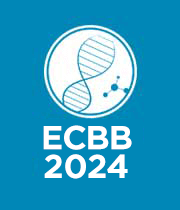Title: Combinatorial fusion tag yields powerful platform process for the production of pharmaceutically relevant proteins
Abstract:
Expression of complex recombinant proteins in E. coli is a major challenge in industrial biotechnology as the protein of interest is often produced with very low titres or misfolded as inclusion body. One possibility to circumvent these problems is the use of fusion partners. Unfortunately, fusion tags can vary greatly in their effectiveness, which is often dependent on the protein of interest. We found that a solubility tag originating from the gene 10 of the T7 bacteriophage can greatly increase recombinant protein titres of multiple relevant biopharmaceutical proteins. Due to its small size of only 22 amino acids, this fusion tag keeps the exerted additional stress on the cellular transcription machinery on a minimal level. The effectiveness of the fusion tag has been evaluated in carbon limited laboratory scale fed-batch fermentations. There, specific recombinant protein titres could be increased by a factor of greater than two compared to expression of the native protein. Since the fermentations were performed under identical conditions, this effect can be attributed solely to the fusion tag which was fused to the N-terminus of the proteins of interest. Furthermore, this fusion tag can be coupled with a pentapeptide cleavage site, resulting in highly efficient and specific cleavage by a human caspase-2 variant. The cleavage is largely independent of the N-terminal amino acid of the protein of interest, which makes this system universally applicable. The combination of the expression enhancing fusion tag with the caspase-2 protease system for efficient tag removal yields a highly capable system to produce challenging recombinant proteins in E. coli, offering an attractive production platform for biopharmaceutical industry.


